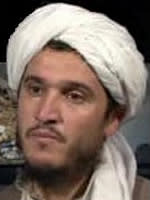 The Envoy
The EnvoyTop Al Qaeda ops chief killed in Pakistan, US says

A senior al Qaeda operations commander, Atiyah abd al-Rahman, has been killed in Pakistan, the Obama administration said Saturday.
"It's been confirmed that al Qaeda's number two, Atiyah abd al-Rahman, was killed earlier this week in Waziristan, Pakistan," a senior U.S. official told the Envoy Saturday by email, describing Atiyah's death as "a tremendous loss for al Qaeda, because [Osama bin Laden's successor Ayman al-] Zawahiri was relying heavily on him to help guide and run the organization, especially since Bin Laden's death."
According to the senior U.S. official, Atiya, who was born in Misrata, Libya in 1970, was killed on Aug. 22. The Associated Press reported that Atiyah was killed in a U.S. drone strike that occurred in Waziristan on Aug. 22, although U.S. officials would not confirm how he was killed.
American officials described Atiyah Saturday as the "number 2" official in al Qaeda after the killing of Osama bin Laden by U.S. Navy Seals in Pakistan in May.
However, Washington Post intelligence columnist David Ignatius, writing in a column Aug. 23--one day after the Aug. 22 strike that killed Atiyah, but several days before U.S. officials confirmed the news--said that U.S. officials believe, based on documents seized at bin Laden's compound, that Atiyah may effectively be more important than Zawahiri. "Indeed, because the Libyan-born Atiyah . . . was the boss's key link with the outside, officials see him as more important than bin Laden's nominal successor," Ignatius wrote.
"The trove of materials from Bin Laden's compound showed clearly that Atiyah was deeply involved in directing al Qaeda's operations even before the raid," the senior U.S. official told the Envoy. The official asked for anonymity to discuss intelligence issues. "He had multiple responsibilities in the organization and will be very difficult to replace."
Counterterrorism experts say that regardless of his ranking in the al Qaeda hierarchy, Atiyah clearly played a key role as a communications hub between different nodes of the al Qaeda network, including between the now deceased bin Laden and former leader of al Qaeda in Iraq.
In 2006, the Washington Post reported that U.S. military officials had obtained a letter apparently written by Atiya to the then leader of Al Qaeda in Iraq, Abu Musab al-Zarqawi, in December 2005. Zarqawi was killed in June 2006.
In the letter to Zarqawi, dated Dec. 11, 2005, "Atiyah bemoans the difficulty of direct communications between Waziristan and Iraq and suggests that it is easier for Zarqawi to send a trusted representative to Pakistan than the other way around," the Washington Post's Karen DeYoung wrote.
"Unable to operate in camps any longer, core al-Qaeda depends on communication between key nodes," said counter-terrorism analyst Brian Fishman, of the New America Foundation, in an email to the Envoy Saturday. "Atiyah was central to those communications and he has now been removed."
However, while his killing is "another blow to al-Qaeda's organizational capacity," Fishman added, it will "not necessarily disrupt its operational capacity."
The U.S. Treasury Department only last month formally designated Atiyah as a member of an al Qaeda logistical support cell whose leader, it said, is based in Iran.
The State Department Rewards for Justice program had offered $1 million for information leading to Atiyah, who it described as an explosives expert and Islamic scholar in regular contact with senior al Qaeda leaders, including bin Laden and Zarqawi. State officials also said he is a member of the Libyan Islamic Fighting Group--a faction that has joined forces with the rebels fighting against Moammar Gadhafi.
"Atiyah joined the now deceased Usama bin Ladin in Afghanistan as a teenager in the 1980s," the State Department's reward listing said. "Since then, he has gained considerable stature in al-Qa'ida as an explosives expert and Islamic scholar. Atiyah became acquainted with al-Zarqawi in the western city of Herat in the late 1990s. He retreated with the now deceased Usama bin Ladin to the mountainous Afghanistan-Pakistan border region in the fall of 2001."
